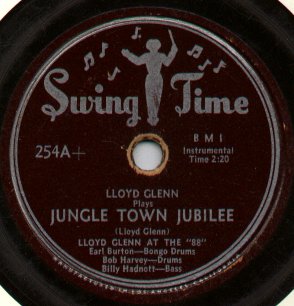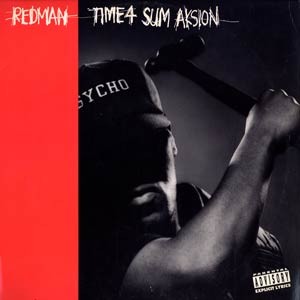
Swing Time Records was a United States-based record label active in the late 1940s and early 1950s. The label was founded by Jack Lauderdale in 1947 as Down Beat Records and was headquartered in Los Angeles, California. In approximately October 1949 the name was changed to Swing Beat Records, and around March 1950 the name was changed again to Swing Time. The company went bankrupt in 1953 but continued releasing singles as late as February 1954.
Joseph Lee Morris was an American jazz and rhythm and blues trumpeter.

Lowell Fulson was an American blues guitarist and songwriter, in the West Coast blues tradition. He also recorded for contractual reasons as Lowell Fullsom and Lowell Fulsom. After T-Bone Walker, he was the most important figure in West Coast blues in the 1940s and 1950s.

"7" is a song by Prince and The New Power Generation, from the 1992 Love Symbol Album. It was released in late 1992 as the third single from the album, and became the most successful in the United States. It features a sample of the 1967 Otis Redding and Carla Thomas duet, "Tramp".

David "Fathead" Newman was an American jazz and rhythm-and-blues saxophonist who made numerous recordings as a session musician and leader, but is best known for his work as a sideman on seminal 1950s and early 1960s recordings by singer-pianist Ray Charles.

Ray Charles is the first release on LP by American pianist, vocalist, and band leader Ray Charles. Originally released in 1957 on Atlantic Records, it was re-released as Hallelujah I Love Her So in 1962. Many of the tracks had been hit singles for Ray Charles in the preceding years, notably "Mess Around" in 1953, "A Fool for You" and "I Got A Woman" in 1955, "Drown In My Own Tears" and "Hallelujah I Love Her So" in 1956.

"Time 4 Sum Aksion" is the second single from Redman's highly acclaimed debut album, Whut? Thee Album. It features production from Erick Sermon and Redman that contains a sample from Lowell Fulson's "Tramp".
Lloyd Colquitt Glenn was an American R&B pianist, bandleader and arranger, who was a pioneer of the "West Coast" blues style.
"Come Back Baby" is a slow blues song written and recorded by the blues singer and pianist Walter Davis in 1940.
"Tramp" is a soul blues song with funk elements, written by West Coast blues artists Lowell Fulson and Jimmy McCracklin. First recorded by Fulson in 1967, it was his highest charting single since "Reconsider Baby" in 1954. The song is partly narrative, with the singer ignoring the criticism of his unsophisticated appearance:

"3 O'Clock Blues" or "Three O'Clock Blues" is a slow twelve-bar blues recorded by Lowell Fulson in 1946. When it was released in 1948, it became Fulson's first hit. When B.B. King recorded the song in 1951, it became his first hit as well as one of the best-selling R&B singles in 1952.

"Every Day I Have the Blues" is a blues song that has been performed in a variety of styles. An early version of the song is attributed to Pinetop Sparks and his brother Milton. It was first performed in the taverns of St. Louis by the Sparks brothers and was recorded July 28, 1935 by Pinetop with Henry Townsend on guitar. The song is a twelve-bar blues that features Pinetop's piano and falsetto vocal. The opening verse includes the line "Every day, every day I have the blues".

"Reconsider Baby" is a blues song written and recorded by Lowell Fulson in 1954. Performed in the West Coast blues style, it was Fulson's first record chart hit for Checker Records, a subsidiary of Chess Records. With memorable lyrics and a driving rhythm, "Reconsider Baby" became a blues standard and has been recognized by the Blues Foundation and Rock and Roll Halls of Fame.
Edwin Leon Chamblee, known as Eddie "Long Gone" Chamblee, was an American tenor and alto saxophonist, and occasional vocalist, who played jazz and R&B.
Leroy "Hog" Cooper was a jazz and R&B baritone saxophonist, most known for his 20-year association, some of the time as musical director/bandleader, with Ray Charles.
"The Champ" is a song by The Mohawks, a group of session musicians assembled by Alan Hawkshaw. It was originally released in 1968 but failed the chart. However, a re-release made #58 on the UK Singles Chart in 1987 after being sampled many times. The song is based on "Tramp", a 1967 Lowell Fulson record that was covered extensively after its release. The song chants the word "Tramp" rather than "Champ".
Marjorie "Margie" Hendrix was an American rhythm and blues singer best known for her performances as a founder member and leader of the Raelettes, backing Ray Charles, the father of their child, Charles Wayne Hendrix. The spelling "Hendricks" is sometimes used.
Lillian Etta Offitt was an American blues and R&B singer.
Stanley Joseph Lewis was an American record label owner, in Shreveport, Louisiana.

I Feel Good!is an album by blues musician John Lee Hooker that was recorded in France in 1969 and originally released by the French Carson label before being released in the US on the Jewel label in 1971.









